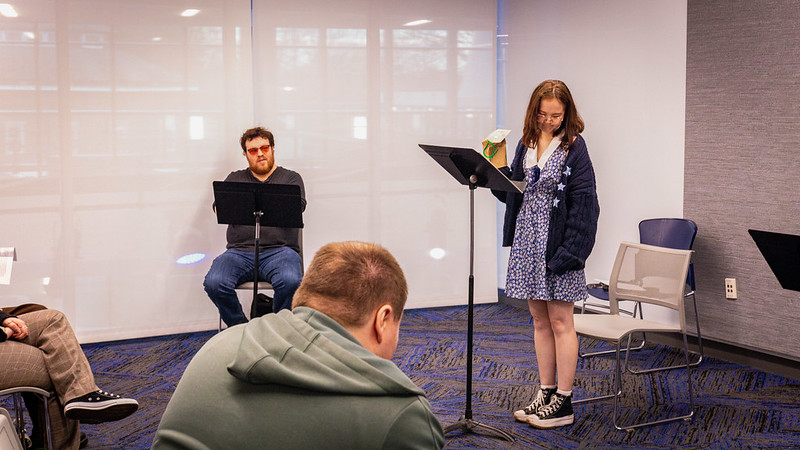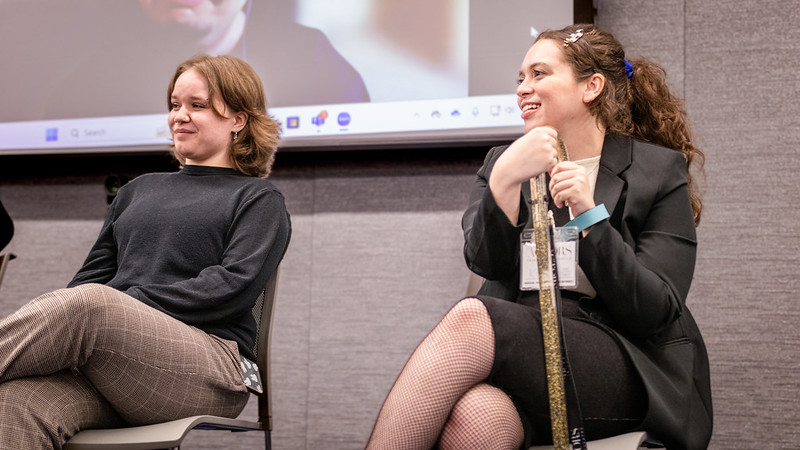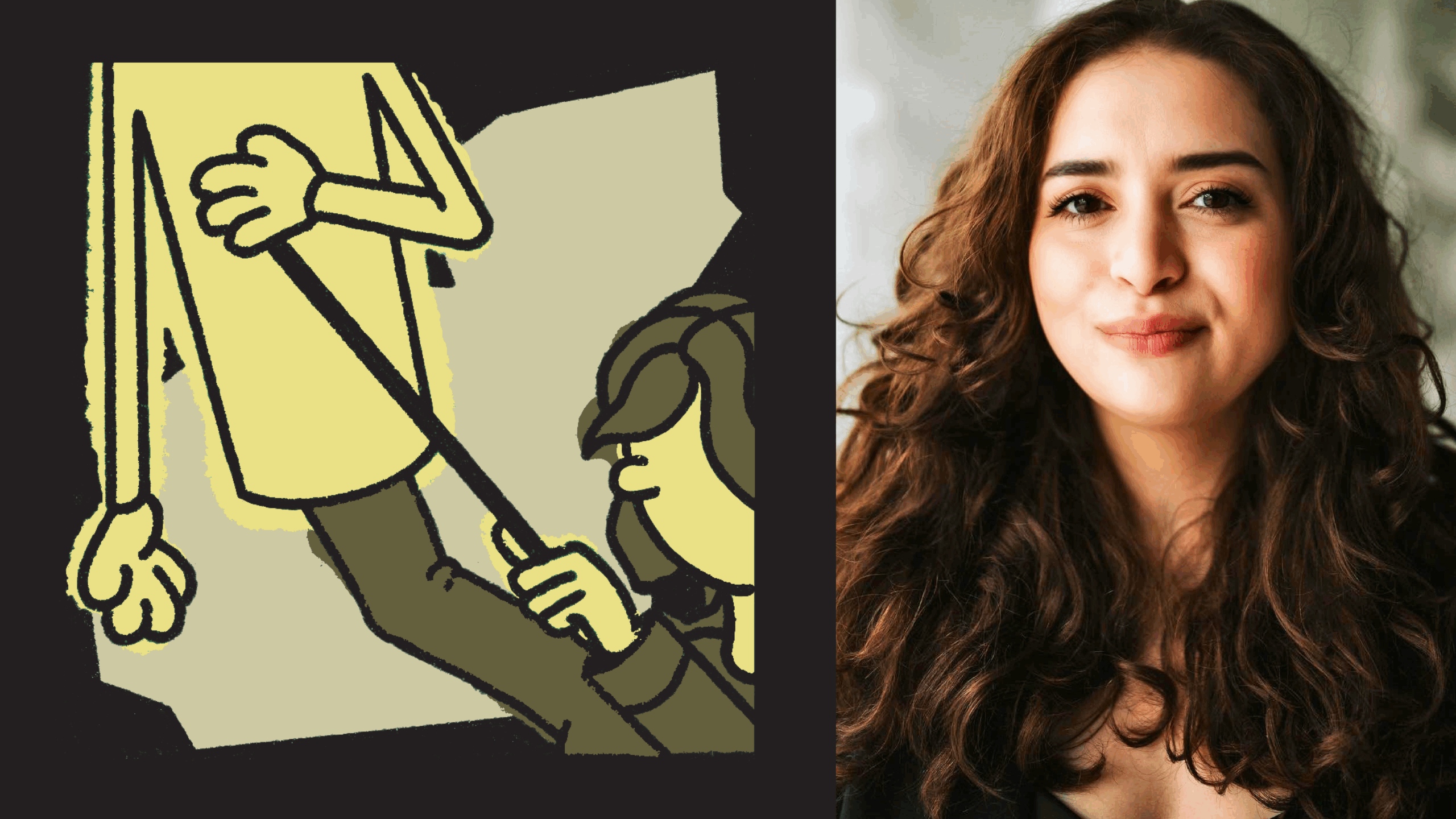Katie Peña-Van Zile remembers the job that inspired her play, Felt, well. “I was diagnosed with autism in 2021, much closer to my thirties than not, while working at an educational puppetry nonprofit. It was truly one of the weirdest jobs I could have ever stumbled into. I learned a lot about myself—and the ugly realities of the nonprofit industry—while working there for $10 an hour during a global pandemic, rewriting outdated and problematic scripts about every disorder or social-emotional issue a child might face,” Peña-Van Zile said.
The protagonist of Felt, Hailey, finds herself in a similar position, working as a puppeteer for a non-profit and revising some of their earlier scripts. When she comes across their scripts on autism, she begins her own research and learns that much of the script is outdated—and resonates with her personally.
Felt was one of four plays selected to be showcased at the Disabled Playwrights Workshop, where it was given a staged reading. A big part of Peña-Van Zile’s goal was to illustrate the ways in which autistic people are treated by even those who have good intentions and seek to work on their behalf.

“So much of the dominant narrative about autism comes from non-autistic people speaking for us. So much of the nonprofit world involves the dominant monoculture colonizing and speaking over the disenfranchised while ‘claiming to help.’ And gosh, the puppet metaphor? It just makes so much sense when you put it all together,” Peña-Van Zile said. “And the dominant narrative in ‘autism-land’ centers on men—something I am not. Sharing how autism presents in someone femme felt important. There’s a whole league of us receiving diagnoses late in life because even the medical professionals of the world seem to think only young white boys can have autism.”
Couple those themes with puppetry, which has been one of Peña-Van Zile’s special interests since an early age, and you have Felt. But a play on the page is very different from a play on the stage, and with direction by Paula Lockhart, Peña-Van Zile got to see her words brought to life in a way that was both nerve wracking and thrilling.
“I often wonder when I’ll stop being absolutely terrified to see my work performed. I think a lot of the fear and wonder I feel for this artform I’m in love with is deeply tied to my autism,” she said. “I’ve spent my whole life being misunderstood and spoken over. And it sucks! So much! But when I write, my words are the most important part of the whole thing. Everything changes from theatrical production to theatrical production because this is an art form about interpretation and impermanence.”
In particular, she found Lockhart a strong collaborator, and given Lockhart serves as the associate director for the Governor’s School for the Arts program, there was another layer to their working relationship.
“It’s so special to work with anyone involved with the Governor’s School for the Arts. That program changed my life at 16 years old. I wouldn’t be the artist I am today without that summer,” she said. “I had never even had access to the theatre before. I was simply a poet? Wild.”

Felt is an excerpt from a longer play, and Peña-Van Zile is working on finding a home for the full-length story. Though this single scene is a big emotional turning point, there is more to the story and it’s one she’s wanted to tell for a long time.
“After workshopping it, I felt like I had a solid jumping-off point to build the workplace satire I’ve been dreaming about ever since my boss once said, ‘One day you’re going to write a play about me called The Devil Wears Yoga Pants.’ There are a lot of well-meaning ableists sitting around conference tables getting paid to speak over the people they claim to help,” Peña-Van Zile said. “I think anyone who’s worked in a 501(c)(3) will find some grant-funded giggles in this piece—and then intermittently get gut-punched by a deeply earnest and poetic monologue about the struggle to survive…from a puppet.”
Katie Peña-Van Zile
Katie Peña-Van Zile is a Latina-Lachian playwright from nowhere in particular. She doesn’t take herself terribly seriously, leading to vague and brief bios like this. An army brat, she is convinced that finding theatre late in life has helped heal her relationship with impermanence. She is proudly community college and state school educated, a Dramatist Guild Catalyst Fellowship Semi-Finalist, and a disabled baddie.




